Tyrosine Hydroxylase Antibody Best Seller
Novus Biologicals, part of Bio-Techne | Catalog # NB300-109

Key Product Details
Species Reactivity
Validated:
Human, Mouse, Rat, Chicken, Drosophila, Insect, Mammal
Cited:
Human, Mouse, Rat, Avian - Chicken, Insect, Insect - Drosophila
Applications
Validated:
Dual RNAscope ISH-IHC, Immunocytochemistry/ Immunofluorescence, Immunohistochemistry, Immunohistochemistry Free-Floating, Immunohistochemistry Whole-Mount, Immunohistochemistry-Frozen, Immunohistochemistry-Paraffin, Knockout Validated, Simple Western, Western Blot
Cited:
Block/Neutralize, Dual RNAscope ISH-IHC, Flow Cytometry, IF/ICC, IF/IHC, IHC-F, Immunocytochemistry/ Immunofluorescence, Immunohistochemistry, Immunohistochemistry Free-Floating, Immunohistochemistry Whole-Mount, Immunohistochemistry-Frozen, Immunohistochemistry-Paraffin, In Situ Hybridization, Knockout Validated, Western Blot
Label
Unconjugated
Antibody Source
Polyclonal Rabbit IgG
Concentration
Please see the vial label for concentration. If unlisted please contact technical services.
Product Specifications
Immunogen
SDS-denatured, native rat tyrosine hydroxylase purified from pheochromocytoma.
Reactivity Notes
Use in Chicken reported in scientific literature (PMID:34416224). Human reactivity reported in scientific literature (PMID:32756440). The tyrosine hydroxylase antibody recognizes all mammalian and at least some non-mammalian forms of the enzyme in Western blots and in IHC/IF. Insect reactivity reported in scientific literature (PMID: 27494326). .
Localization
NB300-109 can be used as a marker for dopaminergic and noradrenergic neurons.
Specificity
Specific for the ~60 kDa tyrosine hydroxylase protein.
Marker
Neuronal Marker
Clonality
Polyclonal
Host
Rabbit
Isotype
IgG
Theoretical MW
60 kDa.
Disclaimer note: The observed molecular weight of the protein may vary from the listed predicted molecular weight due to post translational modifications, post translation cleavages, relative charges, and other experimental factors.
Disclaimer note: The observed molecular weight of the protein may vary from the listed predicted molecular weight due to post translational modifications, post translation cleavages, relative charges, and other experimental factors.
Scientific Data Images for Tyrosine Hydroxylase Antibody
Staining of Tyrosine Hydroxylase in Tissue Sections
Tyrosine hydroxylase immunoreactivity in the central complex and the lateral accessory lobe. A-D: Frontal sections (immunoperoxidase preparations, dorsal to the top). E: Horizontal section (immunofluorescent preparation, posterior to the top). Scale bars = 100 um. Image collected and cropped by CiteAb from the following publication (https://dx.plos.org/10.1371/journal.pone.0160531), licensed under a CC-BY license.Immunofluorescent Detection of Tyrosine Hydroxylase in Mouse Neurons
Dopamine neurons in the mouse substantia nigra. ICC/IF image submitted by a verified customer review.Detection of Tyrosine Hydroxylase in PC-12 Lysate Using Simple Western
Simple Western lane view shows a specific band for Tyrosine Hydroxylase in 0.2 mg/mL of PC-12 lysate. This experiment was performed under reducing conditions using the 12-230 kDa separation system.Applications for Tyrosine Hydroxylase Antibody
Application
Recommended Usage
Immunocytochemistry/ Immunofluorescence
1:1000
Immunohistochemistry
1:10 - 1:500
Immunohistochemistry-Frozen
1:1000
Immunohistochemistry-Paraffin
1:10 - 1:500
Simple Western
2 ug/mL
Western Blot
1:1000
Application Notes
Immunohistochemistry: use reported in literature (PMID: 22262884 and PMID: 23811324). Use in rat and mouse reported in customer review. Use in Immunohistochemistry Free floating reported in scientific literature (PMID 25731749). Use in Immunohistochemistry Whole mount reported in scientific literature (PMID: 26123524). Dual ISH-IHC validation (PMID: 29917232). In Simple Western only 10 - 15 uL of the recommended dilution is used per data point.
See Simple Western Antibody Database for Simple Western validation: Tested in PC-12 lysate 0.2 mg/mL, separated by Size, antibody dilution of 2 ug/mL
See Simple Western Antibody Database for Simple Western validation: Tested in PC-12 lysate 0.2 mg/mL, separated by Size, antibody dilution of 2 ug/mL
Reviewed Applications
Read 7 reviews rated 4.9 using NB300-109 in the following applications:
Formulation, Preparation, and Storage
Purification
Antigen Affinity-purified
Formulation
10 mM HEPES (pH 7.5), 0.15 M NaCl, 0.1 mg/mL BSA, 50% Glycerol
Preservative
No Preservative
Concentration
Please see the vial label for concentration. If unlisted please contact technical services.
Shipping
The product is shipped with polar packs. Upon receipt, store it immediately at the temperature recommended below.
Stability & Storage
Store at -20C. Avoid freeze-thaw cycles.
Background: Tyrosine Hydroxylase
Two transcription factor binding sites in the proximal region of the TH gene, the TPA-responsive element (TRE) and the c-AMP responsive element (CRE), have been implicated in the complex regulation of the TH gene. Dysregulation of breakdown for the amino acid, tyrosine, by TH is a result of a genetic disorder that results in Tyrosinemia (high levels of tyrosine in the blood, tissue and organs).
Tyrosine hydroxylase deficiency is a disorder that primarily affects movement, where individuals display symptoms that include lack of coordination when walking, postural tremors and unusual body positioning. TH deficient dopamine-responsive dystonia (DRD), also known as Segawa syndrome, is a rare genetic disorder that is associated with low levels of TH and is diagnosed during childhood with characteristic symptoms including increased muscle tone (dystonia) and signs of Parkinsonism like bradykinesia, tremors, rigidity and postural instability (2). Correspondingly, TH is also linked to Parkinson's disease in older adults, where low dopamine levels are a consistent neurochemical abnormality. Functional polymorphisms of the TH gene may be involved in the pathogenesis of neuropsychiatric diseases such as schizophrenia and other affective disorders where dopamine is often dysregulated (3).
References
1. Hamanaka, Y., & Mizunami, M. (2019). Tyrosine hydroxylase-immunoreactive neurons in the mushroom body of the field cricket, Gryllus bimaculatus. Cell Tissue Res, 376(1), 97-111. doi:10.1007/s00441-018-2969-9
2. Li, L., & Zhou, F. M. (2013). Parallel dopamine D1 receptor activity dependence of l-Dopa-induced normal movement and dyskinesia in mice. Neuroscience, 236, 66-76. doi:10.1016/j.neuroscience.2012.12.065
3. Borkar, C. D., Bharne, A. P., Nagalakshmi, B., Sakharkar, A. J., Subhedar, N. K., & Kokare, D. M. (2018). Cocaine- and Amphetamine-Regulated Transcript Peptide (CART) Alleviates MK-801-Induced Schizophrenic Dementia-Like Symptoms. Neuroscience, 375, 94-107. doi:10.1016/j.neuroscience.2018.01.056
Alternate Names
TH, TYH, anti-TH, TH mouse, Tyrosine Hydroxylase immunohistochemistry, Tyrosine Hydroxylase mouse
Entrez Gene IDs
7054 (Human)
Gene Symbol
TH
UniProt
Additional Tyrosine Hydroxylase Products
Product Documents for Tyrosine Hydroxylase Antibody
Product Specific Notices for Tyrosine Hydroxylase Antibody
This product is for research use only and is not approved for use in humans or in clinical diagnosis. Primary Antibodies are guaranteed for 1 year from date of receipt.
Loading...
Loading...
Loading...
Loading...
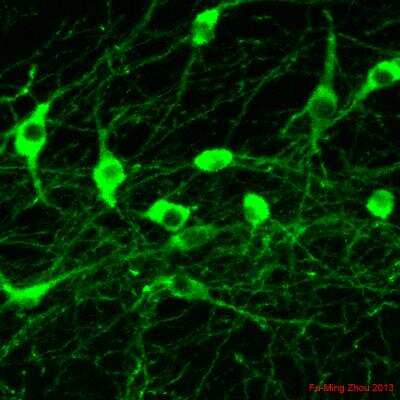
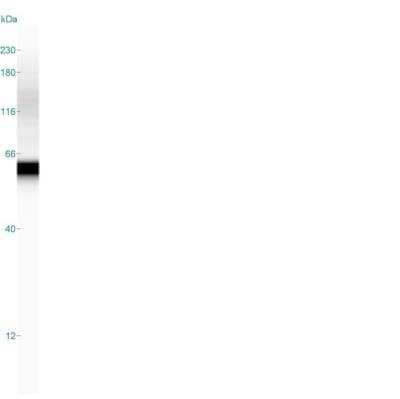
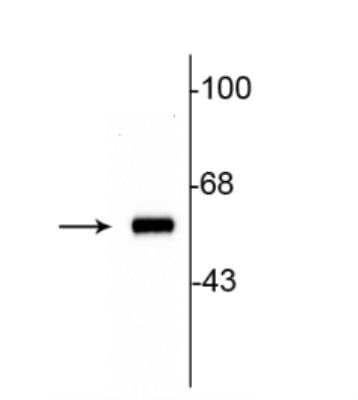
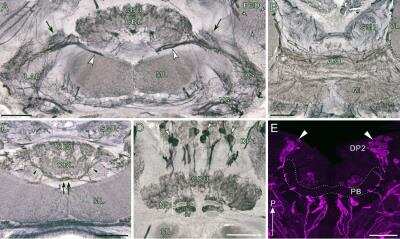
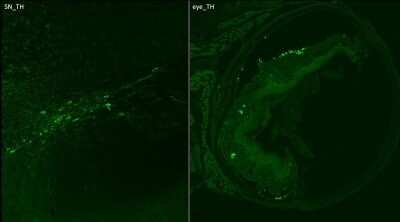
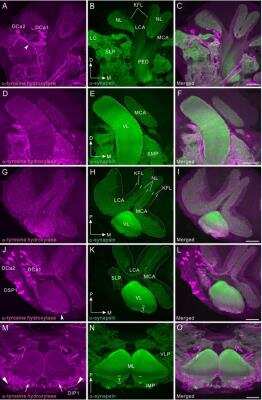
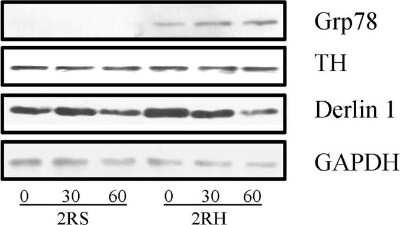
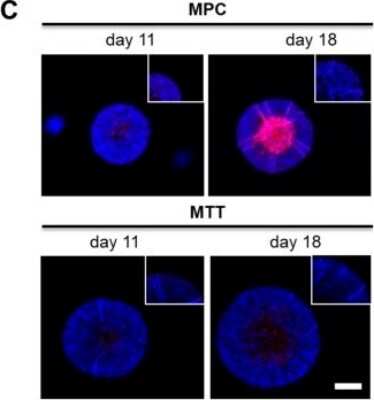
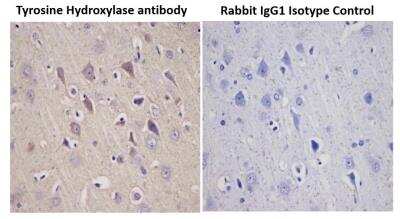
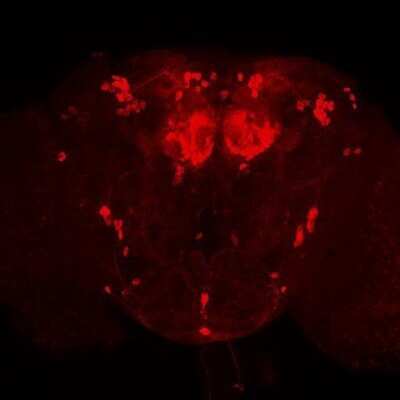
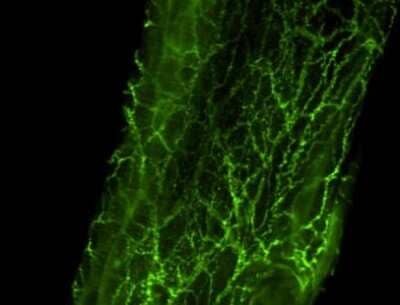
![Western Blot: Tyrosine Hydroxylase Antibody [NB300-109] - Tyrosine Hydroxylase Antibody](https://resources.bio-techne.com/images/products/nb300-109_rabbit-polyclonal-tyrosine-hydroxylase-antibody-271220231253362.jpg)
![Immunocytochemistry/Immunofluorescence: Tyrosine Hydroxylase Antibody [NB300-109] - Tyrosine Hydroxylase Antibody](https://resources.bio-techne.com/images/products/nb300-109_rabbit-polyclonal-tyrosine-hydroxylase-antibody-271220231253335.jpg)
![Immunohistochemistry: Tyrosine Hydroxylase Antibody [NB300-109] - Tyrosine Hydroxylase Antibody](https://resources.bio-techne.com/images/products/nb300-109_rabbit-polyclonal-tyrosine-hydroxylase-antibody-310202415371995.jpg)
![Western Blot: Tyrosine Hydroxylase Antibody [NB300-109] - Tyrosine Hydroxylase Antibody](https://resources.bio-techne.com/images/products/nb300-109_rabbit-polyclonal-tyrosine-hydroxylase-antibody-310202415293344.jpg)
![Immunocytochemistry/ Immunofluorescence: Tyrosine Hydroxylase Antibody [NB300-109] - Tyrosine Hydroxylase Antibody](https://resources.bio-techne.com/images/products/nb300-109_rabbit-polyclonal-tyrosine-hydroxylase-antibody-310202415392574.jpg)
![Western Blot: Tyrosine Hydroxylase Antibody [NB300-109] - Tyrosine Hydroxylase Antibody](https://resources.bio-techne.com/images/products/nb300-109_rabbit-polyclonal-tyrosine-hydroxylase-antibody-31020241535660.jpg)
![Immunohistochemistry: Tyrosine Hydroxylase Antibody [NB300-109] - Tyrosine Hydroxylase Antibody](https://resources.bio-techne.com/images/products/nb300-109_rabbit-polyclonal-tyrosine-hydroxylase-antibody-310202415395928.jpg)
![Immunocytochemistry/ Immunofluorescence: Tyrosine Hydroxylase Antibody [NB300-109] - Tyrosine Hydroxylase Antibody](https://resources.bio-techne.com/images/products/nb300-109_rabbit-polyclonal-tyrosine-hydroxylase-antibody-310202416212328.jpg)
![Western Blot: Tyrosine Hydroxylase Antibody [NB300-109] - Tyrosine Hydroxylase Antibody](https://resources.bio-techne.com/images/products/nb300-109_rabbit-polyclonal-tyrosine-hydroxylase-antibody-310202416205183.jpg)
![Immunocytochemistry/ Immunofluorescence: Tyrosine Hydroxylase Antibody [NB300-109] - Tyrosine Hydroxylase Antibody](https://resources.bio-techne.com/images/products/nb300-109_rabbit-polyclonal-tyrosine-hydroxylase-antibody-310202416205171.jpg)
![Western Blot: Tyrosine Hydroxylase Antibody [NB300-109] - Tyrosine Hydroxylase Antibody](https://resources.bio-techne.com/images/products/nb300-109_rabbit-polyclonal-tyrosine-hydroxylase-antibody-31020241621826.jpg)
![Western Blot: Tyrosine Hydroxylase Antibody [NB300-109] - Tyrosine Hydroxylase Antibody](https://resources.bio-techne.com/images/products/nb300-109_rabbit-polyclonal-tyrosine-hydroxylase-antibody-31020241620377.jpg)
![Immunocytochemistry/ Immunofluorescence: Tyrosine Hydroxylase Antibody [NB300-109] - Tyrosine Hydroxylase Antibody](https://resources.bio-techne.com/images/products/nb300-109_rabbit-polyclonal-tyrosine-hydroxylase-antibody-310202416212334.jpg)
![Immunocytochemistry/ Immunofluorescence: Tyrosine Hydroxylase Antibody [NB300-109] - Tyrosine Hydroxylase Antibody](https://resources.bio-techne.com/images/products/nb300-109_rabbit-polyclonal-tyrosine-hydroxylase-antibody-310202416212326.jpg)
![Immunohistochemistry: Tyrosine Hydroxylase Antibody [NB300-109] - Tyrosine Hydroxylase Antibody](https://resources.bio-techne.com/images/products/nb300-109_rabbit-polyclonal-tyrosine-hydroxylase-antibody-310202416205143.jpg)
![Immunocytochemistry/ Immunofluorescence: Tyrosine Hydroxylase Antibody [NB300-109] - Tyrosine Hydroxylase Antibody](https://resources.bio-techne.com/images/products/nb300-109_rabbit-polyclonal-tyrosine-hydroxylase-antibody-310202416205113.jpg)